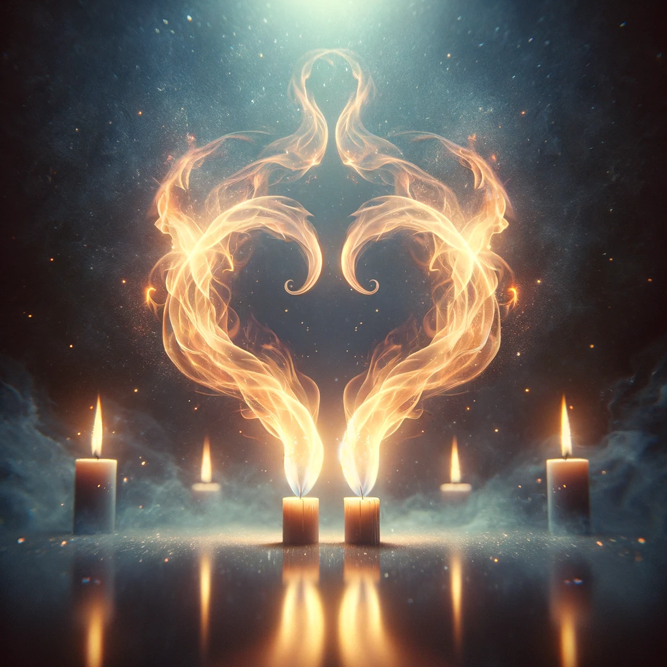Dreams have long fascinated and perplexed humankind, serving as windows into the depths of the subconscious mind. The enigmatic realm of dreams offers a rich tapestry of emotions, symbols, and experiences that often leave us questioning their true meaning and significance. In this article, titled “Struggling to Awaken from a Dream: The Hidden Significance,” we delve into the intricate world of dreams and the profound impact they can have on our mental well-being. Through exploring the psychological implications of being trapped in a dream and the symbolism behind recurring dreams of being stuck, we aim to shed light on this mysterious phenomenon and offer practical ways to cope with the feeling of inability to escape a dream. Join us on this journey of self-discovery and reflection as we attempt to unravel the secrets hidden within the realms of our subconscious minds.
Understanding the Mind’s Intricate World of Dreams
What exactly is a dream, and how are dreams formed? A dream occurs when you are asleep and experience a series of images, ideas, emotions, and sensations that feel like reality. It is a phenomenon that can happen during any stage of sleep, but it typically becomes more vivid and memorable as we approach the final stages of a sleep cycle. This means that the closer we are to waking up, the more likely we are to remember our dreams.
What do Dreams Mean?
Each dream can have different meanings for an individual because it reflects the uniqueness of everyone’s personal experience. In some cultures, dreams were considered to be messages from the gods or something that can predict the future. However, from a scientific standpoint, the meaning behind dreams has little to do with predicting future events or receiving divine messages. Instead, they are symbolic representations of our experiences and emotions.
For example, you may have a dream about falling off a cliff. The fall itself is not significant in predicting future events; instead, it is an expression of your fear of failure or losing control. Dream interpretations vary from one person to another due to different backgrounds and personal experiences. In order to understand what our dreams mean, we need to take time to reflect on what we have been experiencing both consciously and subconsciously.
A Glimpse into Our Unconscious Mind
When we fall asleep, we enter different stages of sleep before reaching the REM (Rapid Eye Movement) cycle where most dreaming occurs. Throughout these stages of sleep, our conscious mind begins to shut off while our unconscious mind takes over. This means that any thoughts or emotions that were suppressed during the day start to reveal themselves in our dreams.
For instance, if you’ve had a bad day at work or have been feeling extremely stressed lately but haven’t had the time to process these emotions properly, they might manifest themselves in your dreams as work-related stress or something nightmarish. Dreaming is the process through which our brain tries to make sense of all these thoughts and emotions by weaving them into stories or scenarios while we sleep.
Exploring the Psychological Implications of Being Trapped in a Dream
Having difficulty waking up from a dream is usually associated with psychological issues. People who experience this are often diagnosed with a mental health disorder or have unresolved underlying trauma. However, there is no concrete evidence that can directly link the psychological implications of being trapped in a dream to mental health disorders. Many people have experienced this phenomenon, and most of them are mentally healthy individuals.
It is important to note that experiencing difficulty in waking up from a dream does not necessarily mean that you have mental health issues. However, it can be an indication that your body is under stress or experiencing physical pain. If you find yourself feeling drained or exhausted despite having enough sleep, it is highly likely that your body is experiencing extreme discomfort while you are sleeping.
There are several reasons why people feel trapped in their dreams:
- Stress: If you are dealing with a stressful situation in your life, your dreams may reflect the anxiety and fear that you are feeling. This can manifest as nightmares or dreams where you feel trapped or unable to escape.
- Anxiety: Anxiety and panic attacks can occur in the middle of the night, causing you to feel as if you cannot breathe or move. These feelings can carry over into your dreams, creating an experience where you feel unable to escape.
- Sleep paralysis: Sleep paralysis is a medical condition where your brain wakes up before your body does, leaving you temporarily unable to move. This can be a terrifying experience and can cause feelings of being trapped in a dream.
The Impact of Dream-State Paralysis on Mental Well-being
It’s the mid of the night, and you’re in the middle of a dream. Suddenly, you wake up, but your body doesn’t respond. Everything is dark, and the room feels heavy. You feel like you’re choking, and your chest hurts. It’s like something is sitting on your chest. You are unable to move or cry out for help, making the situation more terrifying.
This isn’t a nightmare; it’s a real experience that many people have had. It’s called sleep paralysis.
What is Sleep Paralysis?
Sleep paralysis is a condition in which an individual is conscious but unable to move or speak for a few seconds to minutes while waking up or falling asleep. It often occurs when you’re in a dream state or just about to wake up.
Sleep paralysis can be frightening because you cannot move or speak. It can also be accompanied by hallucinations or imagined sounds, such as whispers, humming, static noises, and buzzing. This can cause anxiety and fear.
Causes
In some cases, sleep paralysis occurs without any clear cause. However, it can also be related to other conditions:
- Genetics: Studies have shown that sleep paralysis may run in families.
- Narcolepsy: People with narcolepsy are prone to sleep paralysis due to their inability to maintain a regular sleep cycle.
- Mental health disorders: Anxiety and depression are linked with an increased risk of experiencing sleep paralysis.
- Medications: Certain medications for ADHD have been associated with an increased risk of experiencing sleep paralysis.
It can happen at any age, but it’s more common in teenagers and young adults.
The Impact of Sleep Paralysis on Mental Health
Sleep paralysis is linked to anxiety and depression. The panic that comes with being unable to move or talk while knowing what’s happening around you can frighten anyone, let alone someone who has never experienced it before.
Anxiety
Sleep paralysis often leads to panic attacks. The sensation of being trapped can be overwhelming, resulting in fear that causes the body’s fight-or-flight response to kick in. As a result, individuals may experience hyperventilation, irregular heartbeats, sweating profusely, trembling uncontrollably, and feelings of dread along with other symptoms associated with panic attacks.
Depression
Sleep paralysis has been linked to depression due to its negative effects on mental health. The condition makes it difficult for sufferers to get enough rest since they often wake up tired from the intense fear that accompanies their episodes. Extreme fatigue can significantly impact an individual’s ability to function properly at work or school while sleeping well at night is crucial for those with depression as any disruption could exacerbate their symptoms further.
Unveiling the Symbolism Behind Recurring Dreams of Being Stuck
Recurring dreams of being stuck are a common phenomenon and often take the form of being trapped in an elevator or a confined space, such as a small room, cave, or tunnel. These dreams can be incredibly distressing and can leave you feeling claustrophobic and anxious.
These dreams are often considered to be a reflection of your waking life, and they signify that you feel stuck in some area of your life. The feeling of being trapped in your dream is often synonymous with the feeling of being trapped by a particular situation in your waking life.
What Does It Mean to Be Stuck in a Dream?
Dreams of being stuck are not uncommon, and they often take the form of feeling trapped in quicksand or mud. This type of dream usually signifies that you feel stuck in some area of your life. You may feel overwhelmed by a particular situation, which could be related to work, relationships, or personal struggles.
You may feel like there is no way out, or that you are finding it difficult to move forward. Perhaps you are struggling with feelings of anxiety or depression?
Practical Ways to Cope with the Feeling of Inability to Escape a Dream
People have different ways of dealing with the feeling of not being able to wake up from a dream. The best way to cope with it is to try to focus on what you did for the day. This helps you to be more present and mindful. Being in the present can help you wake up from the dream, even if it feels like you’re stuck.
It can also help you identify whether the dream is a recurring dream or if it’s just one of those dreams that are hard to forget. Recurring dreams are a sign that something is unresolved in your life, and it’s trying to tell you something. When you keep dreaming about this, try to ask yourself what could be causing your dreams and what they might mean.
If the feeling of being unable to wake up from a dream recurs, consider talking with a mental health professional. Having someone to talk about your dreams can help you understand them better and find ways to cope with them. They can also help you deal with the unresolved issues that might be causing these recurring dreams.
As we come to the end of our exploration into the hidden significance of struggling to awaken from a dream, we are reminded of the complex nature of the human mind and the profound influence that dreams can have on our mental well-being. From unraveling the symbolism behind recurring dreams of being stuck to offering practical coping mechanisms, we have gained valuable insights into the ways in which dreams can impact our lives. It is through understanding and embracing the intricate world of dreams that we can begin to navigate the challenges presented by being trapped in a dream-state paralysis. By acknowledging the significance of dreams and their link to our subconscious desires and fears, we empower ourselves to confront and process these emotions, ultimately leading to a deeper sense of self-awareness and personal growth. May this journey inspire you to delve further into the mysteries of your own dreams and awaken to the transformative power they hold within.











